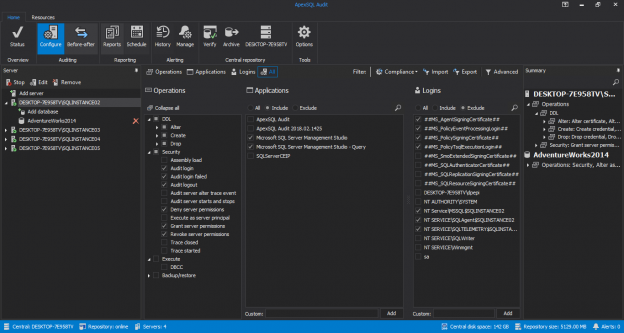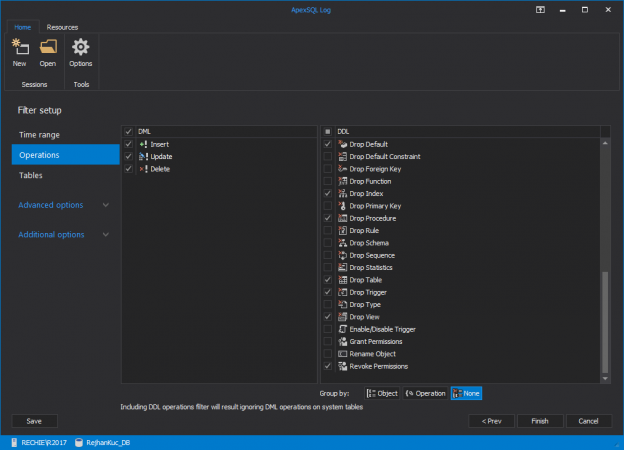
ApexSQL Audit is SQL Server auditing tool, built to make compliance with auditing regulations easy. It provides a wide range of possibilities for auditing access, changes, and security on SQL Server instances, databases, and objects. It also audits executed queries and warnings encountered on tables, stored procedures, functions, and views. Captured information is saved in a centralized auditing repository, and used to create comprehensive reports
August 20, 2013









